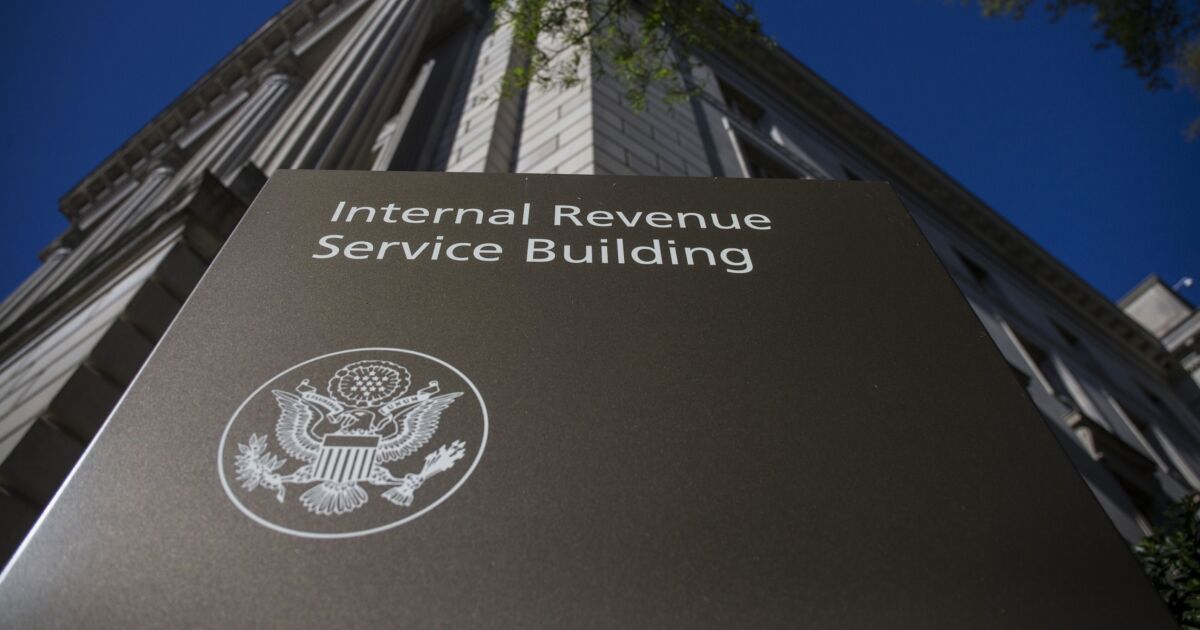A new rule, known as company beneficial ownership information reporting, takes effect on January 1, 2024, and small business owners are not exempt.
Depending on your business structure, you must report beneficial ownership information (BOI)—aka who owns and controls your company—to the U.S. government. If you fail to comply, you could face hefty penalties and even jail time.
Read on to learn if the beneficial ownership information reporting rule applies to your business. And if you are subject to the rule, our article can help you understand your responsibilities.
Table of Contents
What is beneficial ownership information reporting?
Beneficial ownership information includes identifying information (e.g., name) of the individuals who own or control a business. BOI reporting mandates that individuals of certain businesses report this information to the Financial Crimes Enforcement Network (FinCEN)—a bureau of the U.S. Department of the Treasury.
The Corporate Transparency Act (CTA) of 2021 established these BOI reporting requirements to counter illegal activities, including:
- Money laundering
- Financing of terrorism
- Proliferation financing
- Serious tax fraud
- Human trafficking
- Drug trafficking
- Counterfeiting
- Piracy
- Securities and financial fraud
- Acts of foreign corruption
The goal of BOI reporting is to make it harder for bad actors to engage in illegal activities.
However, BOI reporting may also penalize small business owners who don’t know about or understand the requirement. According to Alison Flores, Manager Tax Institute at H&R Block:
Small business owners are largely unaware of these new requirements and do not understand how they apply. Raising awareness now is imperative to help small businesses comply when the reporting rules take effect [January 1, 2024].”
Who must report under the beneficial ownership rule?
Under the beneficial ownership rule, a “reporting company” must report general information and beneficial owner information.
So, does this apply to you? First, you must determine if your business falls under the classification of a reporting company. If so, you must then determine who all your beneficial owners are.
1. What’s a reporting company?
Certain domestic companies and foreign entities are “reporting companies” and must follow the beneficial ownership rule:
- Domestic companies: U.S. businesses structured as a corporation, limited liability company (LLC), or another entity (e.g., statutory trust, business trust, or foundation) that were created by filing a document with a secretary of state or similar office in the U.S.
- Foreign entities: Companies formed under the law of a foreign country that were created by filing a document with a secretary of state (or similar office) to do business in the U.S.
The BOI reporting requirements do not apply to all companies. Twenty-three types of businesses are exempt from BOI reporting requirements, including:
- Accounting firms
- Tax-exempt organizations
- Large operating companies
- Insurance companies
- Inactive entities
There are specific rules for each type of reporting company exemption. For example, large operating companies are only exempt if they employ more than 20 full-time employees in the U.S., have a physical office in the U.S., and reported U.S. gross receipts or sales of more than $5 million on last year’s business tax return.
For a full list of reporting company exemptions and more information, consult FinCEN’s Small Entity Compliance Guide.
| The Bottom Line |
|---|
| Unless exempt, U.S. businesses of all sizes structured as LLCs, corporations, and certain other entities registered with a secretary of state or similar office to do business in the U.S. must report beneficial ownership information. As a result, the AICPA estimates that there will be 32.6 million filings reporting beneficial ownership information in 2024 and 5-6 million filings every year after. |
2. Who is a beneficial owner?
A beneficial owner is an individual who directly or indirectly does either of the following:
- Exercises substantial control over the reporting company. Examples include:
- Senior officers (e.g., company president)
- Appointment or removal authorities
- Important decision-makers
- Owns or controls at least 25% of the reporting company’s ownership interests. Examples include:
- Shares of equity
- Stock
- Voting rights
- Capital or profit interest
The beneficial owner classification does not apply to all individuals. You do not need to report the following individuals as beneficial owners:
- Minor child (i.e., a minor as defined by the jurisdiction where the company was first created or registered)
- To qualify for the exemption, you must instead report the minor child’s parent or legal guardian. However, you must report the minor child as a beneficial owner when they are no longer a minor.
- Nominee, intermediary, custodian, or agent (i.e., someone who acts on behalf of a beneficial owner, such as a tax professional)
- Report on the actual beneficial owner, not the person acting on their behalf.
- Employee (i.e., an individual whose employer controls what and how to do work)
- You can exclude employees if they are not senior officers, and if their substantial control over the reporting company comes solely from their employment status as an employee.
- Inheritor (i.e., someone who only has a future interest in the business through a right of inheritance)
- You may need to report the inheritor as a beneficial owner once they inherit the interest.
- Creditor (i.e., someone who is entitled to payment from the business to satisfy a loan or debt)
- This exception only applies if the creditor’s right or interest for the payment of a debt or loan is their only ownership interest in the reporting company.
Keep in mind that FinCEN has specific rules about beneficial owner exemptions. For more information on the beneficial owner exceptions, consult FinCEN’s Small Entity Compliance Guide.
| The Bottom Line |
|---|
| If your business is structured as an LLC or corporation, you must report information about each individual who exercises substantial control or owns/controls at least 25% of the company (unless exempt). |
Beneficial ownership reporting requirements
Need to file a BOI report? If so, file by your deadline to avoid noncompliance issues. Your deadline depends on when you create or register your business.
- New companies created/registered after January 1, 2024: Within 30 days of receiving notice that your registration is effective
- Companies created/registered before January 1, 2024: By January 1, 2025
| Heads Up! |
|---|
| The portal to submit the report doesn’t open until January 1, 2024. |
Do not file the BOI report annually. Only file the initial report. However, you must file corrected or updated BOI reports if you find any errors or need to update information.
What information do you need to report?
The information you need to report depends on when you create/register your business.
Businesses created/registered before January 1, 2024 must report:
- Reporting company information
- Beneficial owner information
Companies created/registered on or after January 1, 2024 must report:
- Reporting company information
- Beneficial owner information
- Company applicant information
Take a closer look at the information you need to include for each.
Reporting company information
You must report the following information about your LLC, corporation, or other reporting company:
- Legal name
- Trade, doing business as (DBA), or trading as names
- Business address
- Jurisdiction of formation or registration
- Taxpayer identification number (TIN)
Beneficial owner information
Report the following information about each beneficial owner of the reporting company:
- Name
- Date of birth
- Residential address
- Identifying number from an acceptable identification document (e.g., passport or U.S. driver’s license) and the name of the issuing state or jurisdiction*
*You must also include an image of the identification document.
Company applicant information, if applicable
If your business is created/registered on or after January 1, 2024, you must also report company applicant information.
You can report up to two company applicants. The company applicant is the individual who files the document that creates/registers the company. If more than one person is involved in filing, also include the person primarily responsible for directing or controlling the filing.
Include the following company applicant information:
- Name
- Date of birth
- Address
- Identifying number from an acceptable identification document (e.g., passport or U.S. driver’s license) and the name of the issuing state or jurisdiction*
*You must also include an image of the identification document.
How will FinCEN keep your information safe?
FinCEN will store your company’s reported BOI information in a “secure, non-public database.” According to FinCEN, they will use rigorous security methods and controls to handle this private information.
So, who has access to your reported information? Government and foreign officials can submit a request through a U.S. Federal government agency to obtain secure information. In certain situations, financial institutions can also request access to reported information—if the reporting company consents.
How do you file your report?
You must file your BOI report electronically through FinCEN’s website. Keep in mind that the form is not yet available and filing won’t be available until January 1, 2024.
FinCEN will post the BOI reporting form on its website.
What to do if you make a mistake on the report
If you make a mistake relating to your company information, beneficial owner information, or company applications, you must correct it.
Correct your report within 30 days after becoming aware of the inaccuracy (or having reason to know of it)
What to do if the information you report changes
If your company or beneficial owner information changes (e.g., new CEO), you must update your BOI report.
File an updated report within 30 days after the date of the change.
Penalties for failing to follow the beneficial ownership rule
There are some pretty steep penalties for failing to comply with the beneficial ownership reporting requirements. These include hefty fines and jail time.
FinCEN will assign the following penalties to businesses that willfully fail to report truthful and accurate beneficial ownership information:
- Civil penalties: Up to $500 per day that a violation continues
- Criminal penalties: Up to $10,000 fine and/or up to two years of imprisonment
If a business fails to file a required BOI report, senior officers may be held accountable.
Preparing your small business for BOI reporting
It’s easy to get overwhelmed by all of the BOI requirements and rules.
Here’s a quick list of what you need to do to prepare your business for the FinCEN beneficial ownership rule:
- Determine if you are a reporting company (LLCs and corporations)
- Find out if your company meets the reporting company exemption
- Determine who your beneficial owners are (individuals who exercise substantial control or own at least 25% of the company’s ownership interests)
- Find out if any of your beneficial owners are exempt from the reporting requirements
- Gather the following information for the BOI report
- Reporting company information: Name, address, jurisdiction of formation or registration, and TIN
- Beneficial owner information: Name, date of birth, residential address, identification document information
- Company applicant information (if applicable): Name, date of birth, residential address, identification document information
- Electronically file the BOI report with FinCEN by your deadline
- New companies created/registered after January 1, 2024: Within 30 days of receiving notice that your registration is effective
- Companies created/registered before January 1, 2024: By January 1, 2025
For more information on your responsibilities, consult FinCEN’s BOI reporting frequently asked questions.
Overwhelmed yet?
Here at Patriot Software, we know starting and running a business is very demanding. You have federal, state, and local laws to understand and keep up with.
That’s why we developed fast, easy, and affordable accounting software and payroll software. Our software lets you streamline administrative tasks so you can focus on running your business.
Accounting software: Easily track your expenses and income, generate key accounting reports, and more.
Payroll software: Pay employees with a few clicks while enjoying must-have features like free direct deposit, real-time payroll tax updates, and more.
Patriot is more than a software provider—we’re a partner who measures its success by your success. Sign up for a free trial today to see our award-winning software and support in action!
This is not intended as legal advice; for more information, please click here.




